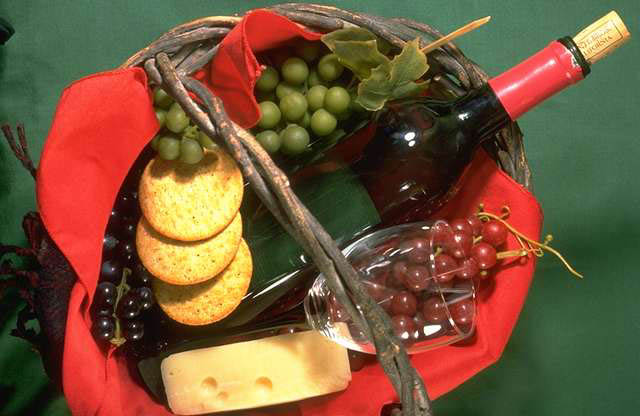Misconceptions about how to freeze food safely are contributing to food waste in Wales and across the UK, according to new research by the Food Standards Agency (FSA).
The research – released as part of Food Safety Week (4th-10th July) – identified a number of freezing ‘myths’ that are preventing people in Wales from using their freezers to make food go further. 37% of those interviewed think that food should only be frozen on the day of purchase to be safe; 34% incorrectly said it is dangerous to refreeze meat after it has been cooked; and 39% wrongly believe that food can become unsafe to eat while in the freezer.
Three quarters (75%) of people surveyed in Wales have thrown food away in the past month, with bread (46%), fruit (39%), vegetables (34%) and leftover meals (25%) topping the list. The most common reason given by respondents in Wales for throwing food away is that they had bought too much of it, cited by 34% of people. 31% admit to throwing food away because it was past its ‘use by’ date, and over half (56%) say they feel guilty when they throw food away. However, the reasons given can all be avoided by making better use of the freezer.
In response, the FSA is focusing this year’s Food Safety Week on helping people to understand how to waste less food safely by making more of their freezers. Furthermore, the FSA, working with Defra and WRAP, has announced that it will be launching a review of the guidance provided to the food industry on date marking on food. This will include consideration for whether the remit of the guidance should be expanded to cover food storage and freezing advice for consumers.
The research also found that 93% of people in Wales say there are foods they would never freeze. A quarter (25%) of those surveyed in Wales would never freeze meat that was cooked after defrosting, with 78% of these people saying this is down to worries about food poisoning.
Steve Wearne, Director of Policy at the FSA, said:
“Every year, we throw away seven million tonnes of food and drink from our homes. Much of this waste is unnecessary, and a better understanding of how to freeze food safely could go a significant way towards tackling the problem.
“Our research shows that many of the fears the public has about freezing food are unfounded and we need to ensure they know the facts. 33% of the people we spoke to in Wales said that more information about how to safely freeze food would help them to reduce their food waste – that’s why freezing is the focus of this year’s Food Safety Week.
“The freezer is like a pause button, so you can freeze foods right up to the ‘use by’ date. While food is kept safe in the freezer, it’s the quality that deteriorates over time, so we recommend eating it within three to six months and checking for any freezing instructions on the packaging. Once defrosted, the pause button is off, so defrost food as and when you need it and eat it within 24 hours of it being fully defrosted.”
Helen White, food waste expert at Love Food Hate Waste, said:
“In the UK each household wastes the equivalent of about six meals a week, which is bad for our pockets and the planet! Reducing food waste is a big challenge, so the Love Food Hate Waste campaign is delighted to lend its support to Food Safety Week, which aims to raise awareness of this important issue. Freezing food is one of the little things we can all do to make a big difference and the best bit is that most foods can be frozen – even those you wouldn’t expect! For more fantastic freezer facts, visit wales.lovefoodhatewaste.com or hoffibwydcasaugwastraff.com.”
For more information on how to reduce waste and freeze food safely, visitwww.food.gov.uk/useby or follow @FSAWales #EatitCookitFreezeit on Twitter for tips and advice throughout Food Safety Week.
Top Ten Tips to help Reduce Food Waste!
1) Know the difference between “use by” and “best before” dates
“Use by” dates are the most important ones to consider, as these relate to food safety. Most foods can be frozen safely up until the “use by” date, but not after.
“Best before” dates are about quality, not safety. When the date is passed, it doesn’t mean that the food will be harmful, but it might begin to lose its flavour and texture.
2) Don’t trust the sniff test!
Food can look and smell fine even after its use-by date, but that doesn’t mean it’s safe to eat. It could still be contaminated. You cannot see, smell or taste the bugs that cause food poisoning.
3) How long can I freeze things for and what about the Use by date?
Foods can be stored safely in a correctly functioning freezer for years without going off.
The freezer is like a pause button, so you can freeze foods safely right up to the “use by” date. Whilst food is kept safe in the freezer, it’s the quality that deteriorates over time, so we recommend consumption within three to six months to ensure the best quality, and check for any freezing instructions on the packaging.
Once defrosted, the pause button is off, so it’s best to defrost food as required and eat within 24 hours of it being fully defrosted.
4) When should I freeze food?
Many people believe food can only be frozen on the day of purchase – as often recommended by retailers to preserve the quality of the food.
However, you can safely freeze most foods right up to the “use by” date. Although it would be good to freeze the food as soon as you know you aren’t going to use it before its “use by” date expires.
5) Did you know that you can safely freeze raw and cooked meats?
You can cook defrosted meat into a new meal and freeze for use on another day. Simply defrost overnight in the fridge (be careful that raw meat doesn’t drip on any other foods in the fridge and check it is thoroughly defrosted), use within 24 hours and cook until steaming hot.
6) How long can you freeze meat for?
Generally you can freeze meat for a long time and it will still be safe to eat, but the quality will deteriorate so it’s best to eat it within three to six months to ensure it’s of the best quality. Don’t worry if it’s frozen for longer – try marinating it before cooking to improve texture or use herbs and spices to add flavour.
7) Make the most of multi buys
If you are taking advantage of multi buys or larger pack sizes (e.g chicken breasts) you can freeze them individually in smaller bags to avoid having to eat them all at once. You can also cook enough for two (or more!) meals and eat one and freeze some for later – this avoids waste and minimises the effort of cooking.
8) Batching cooking
Batch cooking, cooking new meals from leftovers and freezing of homemade foods, can be a great way of saving money (and time) and using up foods approaching their Use By date as well as reducing waste.
9) Wrap up
It is best to place food in an air tight container or wrap food well in freezer bags, freezer wrap or cling film before placing in the freezer otherwise the cold air will dry it out. Try to expel any air from freezer bags.
10) Planning
Try and get into the habit of checking what you already have in the fridge and freezer before you go shopping. Use up foods that are approaching their Use by date and other fresh foods like fruit and vegetables, meat, fish, cheese or milk first as these can go off over time.
Help keep news FREE for our readers
Supporting your local community newspaper/online news outlet is crucial now more than ever. If you believe in independent journalism, then consider making a valuable contribution by making a one-time or monthly donation. We operate in rural areas where providing unbiased news can be challenging. Read More About Supporting The West Wales Chronicle























